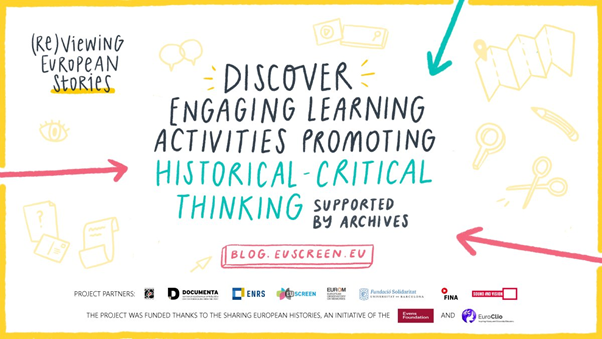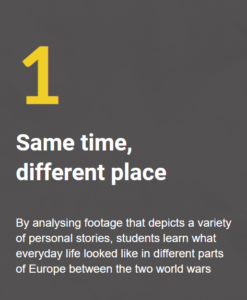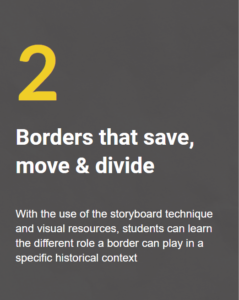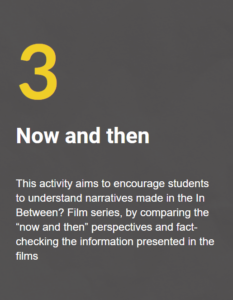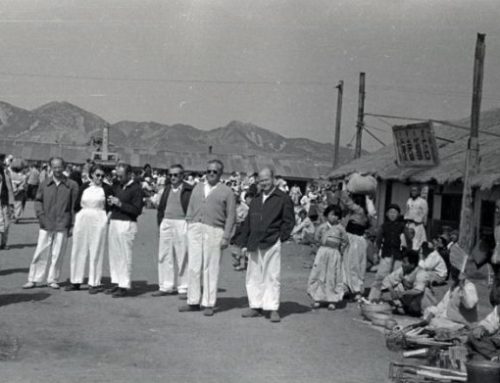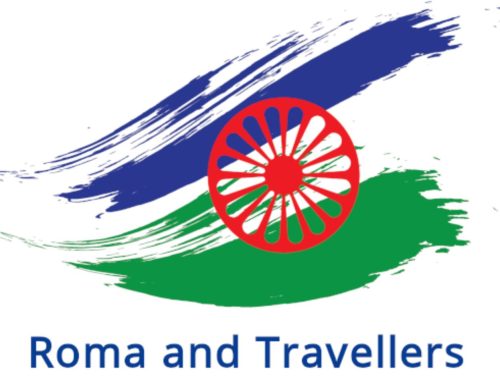European histories are most prone to conflicting interpretations in places where national borders shifted repeatedly and local communities were uprooted or new communities settled in. To integrate these border dialogues in the classroom, EuroClio’s Sharing European Histories project supported efforts by the EUscreen Foundation to develop learning activities about borders and their significance in European history. The resulting educational project (Re)Viewing European Stories has now published three ready-to-use innovative learning activities, which make creative use of audiovisual content from the EUscreen and Europeana archives. The activities encourage students to widen their perspectives and provide better context to many events in twentieth century European history, making them useful for any national curriculum. Additionally, the activities put personal stories at the center of students’ engagement, promote critical historical thinking, develop media literacy skills, and give students and teachers the flexibility they need to adapt them to their own learning goals.
About the project
(Re)Viewing European Stories kicked off in October 2019, when a team of archival practitioners, historians and educators, as well as external experts convened in Warsaw to come up with ideas for engaging and interactive learning activities provoking critical thinking, while also using digital source materials and enhancing media literacy. The team settled on exploring the themes of migration and movement around three short films made by The European Network for Remembrance and Solidarity, one of the contributors, in their 2017 In Between project. The films investigated the dynamics of history and remembrance in three European borderlands, which suffered from big changes and upheavals in the twentieth century. By displaying oral history research in the chosen regions, the films allow students to engage with local and personal stories, before connecting them to the bigger historical context. The depicted borderlands include the Polish-Lithuanian border, where different groups of people have lived together for centuries while the borders drastically changed during 20th century, the Bosnian town of Mostar, which found itself at the crossroads of the Yugoslav Wars of the 1990s, and the Catalan cross-border region, where many Spaniards attempted to flee the Franco regime at the conclusion of the Spanish Civil War.
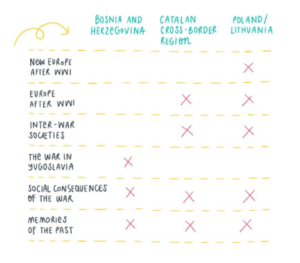
This image showcases how the films correspond to wider historical themes
The Learning Activities
In December 2020, the team finished their work and the completed activities are now freely available for teachers to use in their classrooms. All learning activities come with a premade package of learning materials, including information packs, step-by-step activity plans, and stimulating visuals. The intended age of students varies between 11 and 18 years old. The activities are initially designed for two lessons of forty-five minutes each, but can be adapted to suit any teacher’s needs.
Download the Learning Activities
The project’s learning activities have been published here under EuroClio’s educational materials or can be downloaded directly from the EUscreen Blog:
More information
Visit the EUscreen blog for more information on the development of (Re)Viewing European Stories:
The Project Page: http://blog.euscreen.eu/reviewing-european-stories/
The History of the project: http://blog.euscreen.eu/2019/12/reviewing-european-stories-co-creation-workshop/
Contributors
(Re)Viewing European Stories is coordinated by the EUscreen Foundation, funded by the Evens Foundation and supported by EuroClio as part of the Sharing European Histories project. The project brought together archival practitioners, historians and educators, as well as external experts from a number of European countries: Documenta – center for dealing with the past (Croatia), Borderland Foundation (Poland), European Observatory on Memories (Spain), European Network Remembrance and Solidarity (Poland and others), National Film Archive – Audiovisual Institute (Poland), Netherlands Institute for Sound and Vision (Netherlands), with Jacek Staniszewski (Poland), a history teacher and EuroClio ambassador, serving as an independent education lead.

